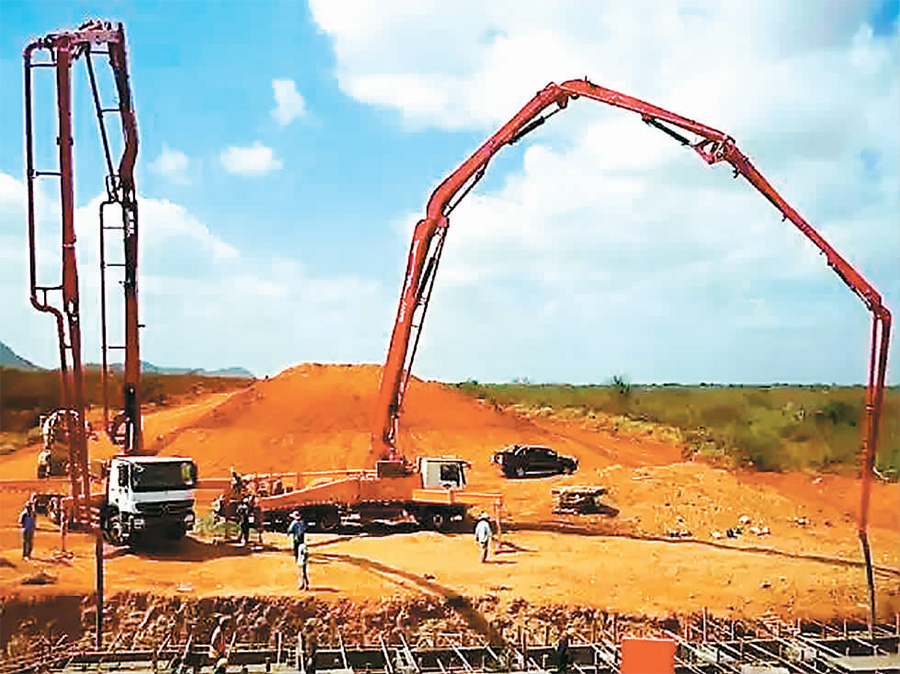Bigger role for China's construction machinery in Belt and Road Initiative

Construction machines of Sany Heavy Industry Co., are joining the construction of Mombasa Nairobi Railway. [File photo]
The industrial international standards for the cement and mortar preparation machinery and equipment mainly developed by China's Zoomlion company was recently published.
This is the first international standard in the field of construction machinery industry in which China has taken the lead to develop and publish.
Experts point out the move is not only good for the technological progress of relevant machinery and equipment, but also conducive to global recognition of the Chinese construction machinery industry.
Enhancement of Chinese construction machinery industry's status in the market goes along with the opening-up of China.
Zoomlion was founded in 1992, and made the first concrete pump for which China held all intellectual property rights one year later. After that, it made China's first intelligent asphalt distribution truck, first rubber-powder modified asphalt equipment, first self-propelled road-metal spreading machine, etc.
Su Zimeng, secretary-general of the China Construction Machinery Association, said the country's construction machinery enterprises had gained a comparative competitive advantage in the range and diversity, scale and quality of their products.
Industrial capacity cooperation under the Belt and Road Initiative not only creates development space for the industry, but also supports the going out of both upstream and downstream enterprises.
Zhou Minliang, a researcher of industrial economy with the Chinese Academy of Social Sciences, said: "It is natural for some construction machinery enterprises to merge and acquire some foreign enterprises or component suppliers. This will help them make good use of resources at home and abroad, after achieving certain success through innovation at home."
Overseas mergers and acquisitions can help Chinese enterprises avoid trade protectionism and technological barriers in some developed countries, and also give them the ability to directly tap into foreign enterprises' technological accumulation, marketing channels and research and development talents, Zhou said.
In addition, Chinese construction machinery enterprises must adapt their products to foreign market needs in a timely way, and become familiar with local laws and rules on labor issues, national security and environmental protection as soon as possible, so as to effectively manage and control institutional risk, he added.
It is believed China's construction machinery and equipment will make an even larger contribution to China and the world through taking part in domestic urbanization as well as infrastructure projects of the Belt and Road Initiative.
It is estimated that infrastructure projects planned by countries along the Belt and Road routes will need more than US$10.6 trillion investment by 2020.

